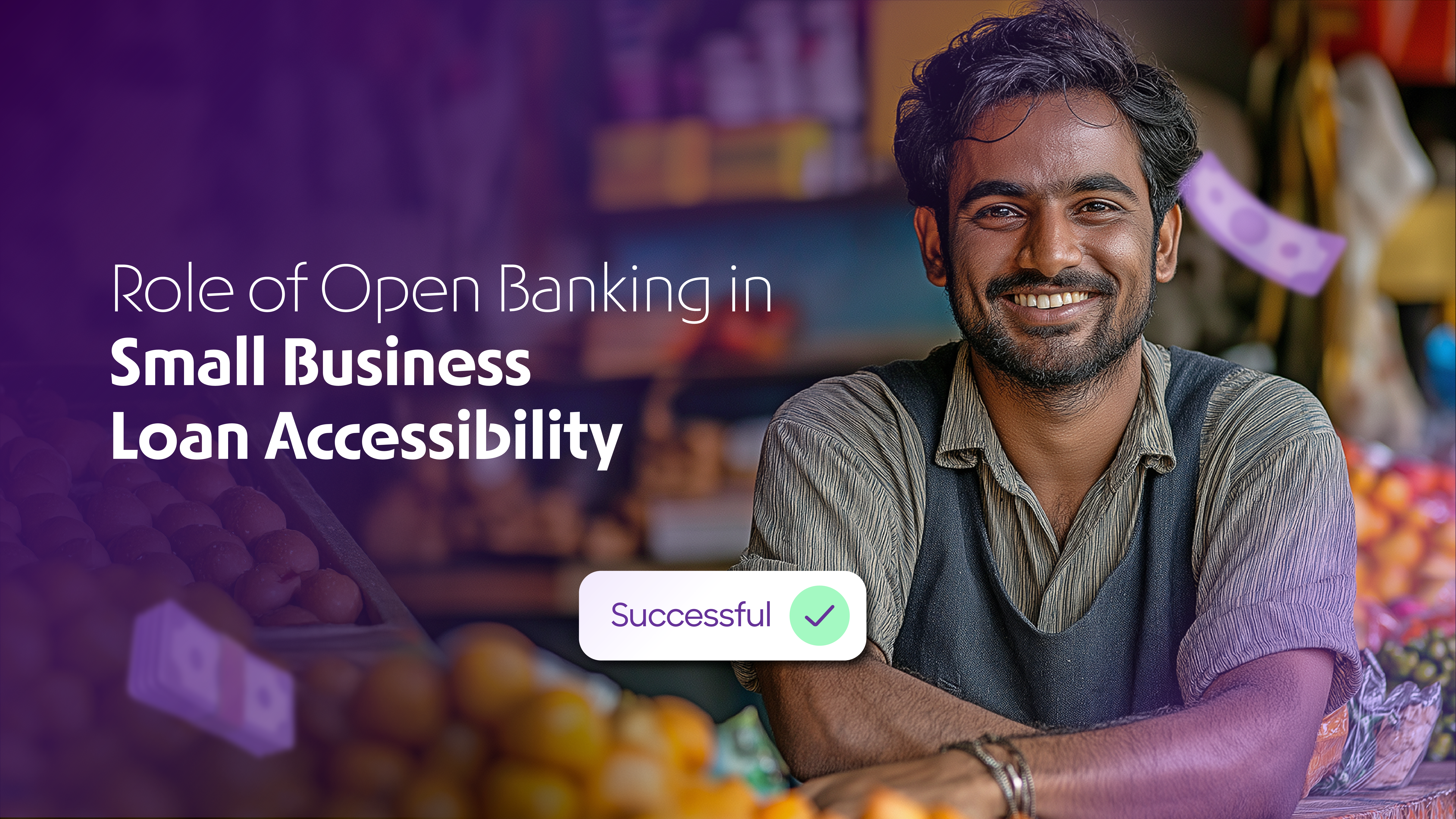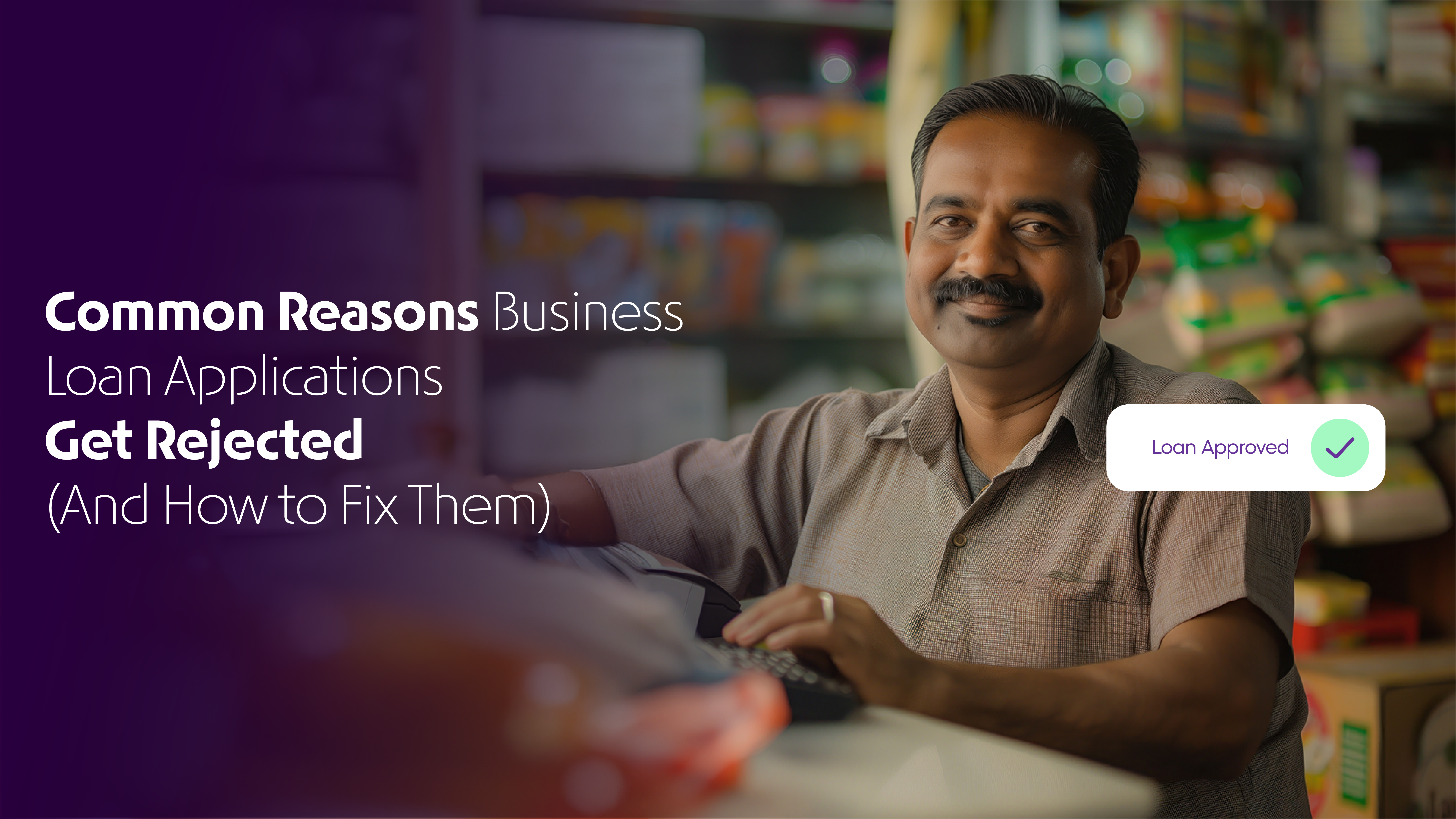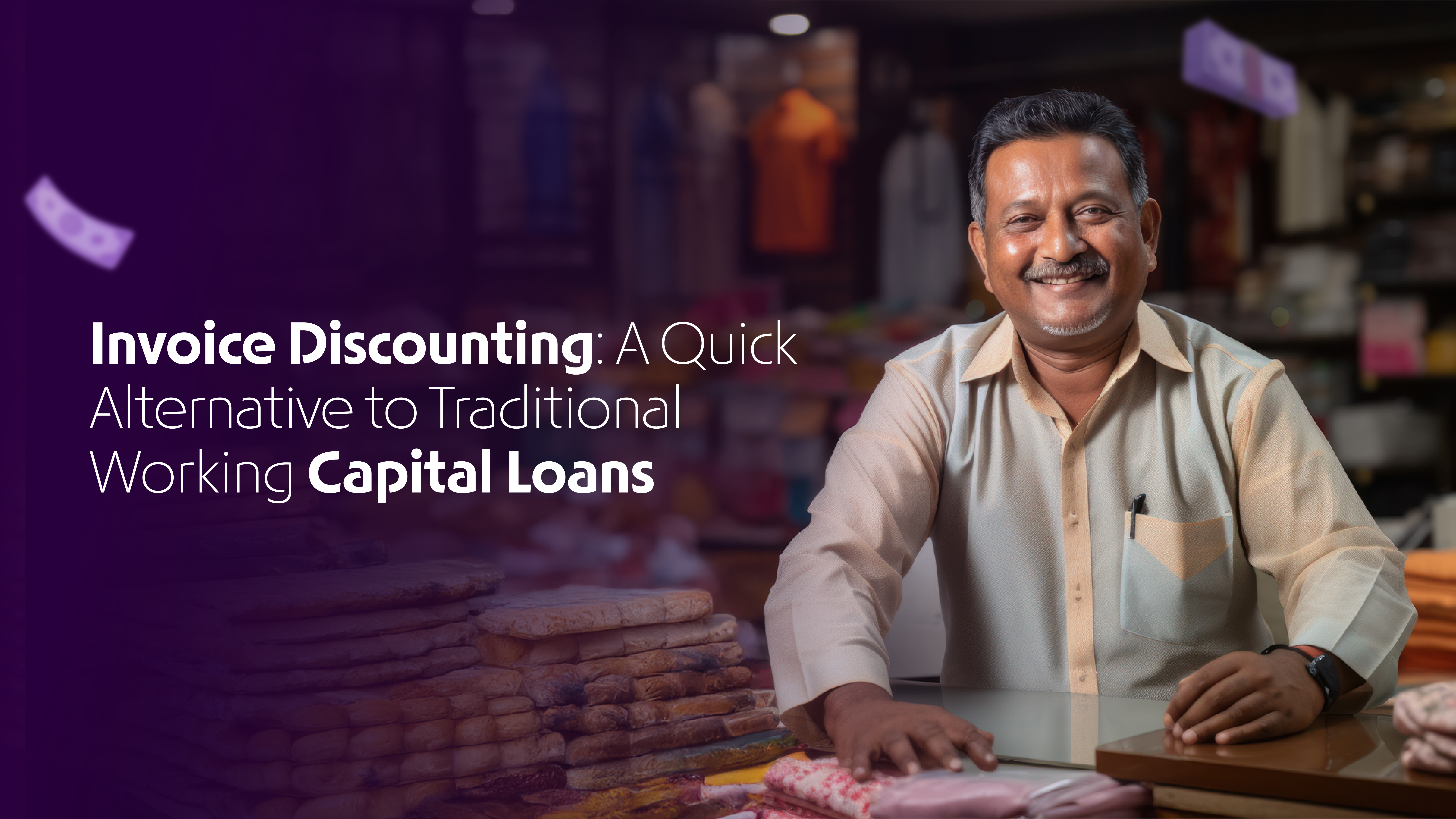For millions of small and medium-sized enterprises (SMEs) across India, accessing a timely business loan has always been a formidable challenge. The traditional process is often a slow, paper-heavy journey filled with complex documentation, lengthy waiting periods, and a high dependency on collateral. This is where open banking for small business loans is emerging as a powerful solution, transforming the lending landscape and empowering entrepreneurs.
In this blog, we’ll dive deep into what open banking is, how it’s specifically helping Indian SMEs, and what you can do to leverage this financial innovation for your business growth.
What Exactly is Open Banking and Why Does It Matter for You?
Think of your financial data—your bank statements, GST returns, and tax filings—as a digital treasure chest. Traditionally, this chest was locked and only accessible by a single entity: your bank. Open banking, also known as Open Finance, changes this by allowing you to securely and instantly share this data with other financial institutions, with your explicit consent.
This is made possible in India through the Account Aggregator (AA) framework, regulated by the Reserve Bank of India (RBI). It’s a secure and consent-based system that acts as a digital bridge between a Financial Information Provider (FIP), such as your bank, and a Financial Information User (FIU), like a lending company.
Here’s the key takeaway for a small business owner: Open banking puts you in control of your own financial data. You decide who sees it, for how long, and for what purpose. This simple change unlocks a world of possibilities, especially when you’re seeking capital.
The Traditional Loan Application: A Hurdles Race
Let’s be honest, the conventional loan process can feel like an endless series of hurdles.
- Piles of Paperwork: Gathering six months of bank statements, GST filings, and income tax returns can be a time-consuming and tedious task.
- The Collateral Conundrum: Many small businesses, especially service-based ones or startups, don’t have large assets to offer as collateral. This is a major roadblock to securing a loan.
- Slow Approval Times: The manual verification of documents and physical meetings with loan officers can stretch the approval process from weeks to months, often causing you to miss critical growth opportunities.
- Limited View of Your Business: A lender relying only on old bank statements gets a static, outdated snapshot of your business. They might miss your recent surge in sales or improved cash flow, leading to a less favorable loan offer.
How Open Banking Is Paving a New Path to Credit
Open banking is not just a technological upgrade; it’s a fundamental shift that addresses the core pain points of small business lending.
1. Goodbye, Paperwork. Hello, Instant Data Sharing!
With the AA framework, instead of downloading and uploading countless PDFs, you can give a lender a secure, digital consent to view your financial data instantly. This is a single, one-time action that replaces hours of manual work. The data is transferred in a machine-readable format, which means the lender can process it much faster.
Pro Tip: This streamlined process allows you to apply for a loan from the comfort of your home or office, saving you valuable time and effort that can be better spent on running your business.
2. A Fairer Assessment, Beyond Just Credit Scores
Traditional lending often heavily relies on your personal or business credit score. But what if you’re a growing business with a strong cash flow but a limited credit history? Open banking allows lenders to get a holistic view of your financial health.
By analyzing your real-time cash flow, recurring revenue, and transaction patterns, lenders can make a more informed and accurate risk assessment. This leads to fairer eligibility decisions and better loan offers, even for businesses that might have been rejected in the past. It’s a shift from “who you are” (credit score) to “how your business is performing.”
3. Faster Approvals and Disbursements
Speed is everything in business. An opportunity to buy raw materials at a discount, hire a new team member, or invest in new machinery often requires quick access to funds. With open banking, the time from application to loan disbursement can be drastically reduced.
The automated, secure data transfer eliminates the need for manual verification, leading to near-instantaneous eligibility checks and faster approvals. This means you can get the capital you need in days, not weeks.
Realistic Example: Imagine you run a small e-commerce business selling handcrafted goods. A sudden festive season surge in orders requires you to restock inventory quickly. With a traditional loan, you might miss the peak sales window waiting for approval. With an open banking-enabled process, you could get a collateral-free loan approved and disbursed in a fraction of the time, allowing you to capitalize on the opportunity.
4. Tailored Products for Your Needs
By providing lenders with a clear picture of your cash flow and business cycle, open banking also enables them to offer you more personalized loan products. For instance, a lender can understand your seasonal revenue fluctuations and offer you a flexible repayment schedule that aligns with your business’s rhythm. This helps you manage your finances better and avoid defaulting on payments during lean months.
A Glimpse into the Future of Lending
The impact of open banking on loan accessibility for SMEs is just beginning to be realized. As more banks and financial institutions adopt the AA framework, we can expect a future where:
- Integrated Solutions: Your accounting software and payment gateways can be seamlessly connected to your loan application, creating a truly unified financial experience.
- Proactive Offers: Lenders can proactively offer you pre-approved loans based on your real-time business performance, without you even having to apply.
- Greater Financial Inclusion: Open banking can bring millions of small and micro-businesses, which operate primarily in the informal sector, into the formal financial ecosystem by providing them with a digital financial identity.
This shift is a clear win-win. It enables small businesses to access the capital they need to grow, and it allows lenders to serve a wider, more diverse set of customers with greater efficiency and lower risk.
How OPEN Capital Is Leveraging This Shift
At OPEN Capital, we believe that every small business deserves a chance to thrive. We’ve designed our collateral-free business loans for up to ₹30 Lakhs with this future in mind. Our fully digital application process, powered by secure data sharing, enables us to provide quick and transparent access to credit, allowing you to focus on what you do best—building your business.
We don’t believe in lengthy paperwork or collateral as a barrier to your dreams. We assess your business’s potential based on its performance and cash flow, giving you a fair shot at the funding you need.
Frequently Asked Questions (FAQs)
What is the Account Aggregator (AA) framework? Is it safe?
The AA framework is an RBI-regulated system that enables you to securely share your financial data from one institution to another. It is considered highly secure, with end-to-end encryption. The Account Aggregator does not store your data; it only acts as a conduit for the data, and your consent is mandatory for every data share.
How is Open Banking different from my bank’s internet banking portal?
Your bank’s portal gives you a view of your own data within that bank. Open banking allows you to share data from that bank with a third party (like a lending company) in a secure, machine-readable format, with your consent.
Do I need to be a tech-savvy person to use this?
Not at all. The entire process is designed to be simple and user-friendly. The consent journey is typically a few clicks, and a reliable lender will guide you through it.
Does sharing my data through open banking affect my credit score?
No, simply sharing your financial data does not impact your credit score. Lenders may perform a credit inquiry as part of their underwriting process, which can have a minor, temporary effect, but the data sharing itself is neutral.
Can I choose which data to share with a lender?
Yes. Through the AA framework, you give explicit consent for specific types of data (e.g., bank statements, GST data) for a defined period (e.g., 90 days). You are always in control.
What happens after I give my consent to share data?
The lender receives a secure, encrypted stream of your financial data. They use this information to quickly and automatically assess your creditworthiness and eligibility for a loan, leading to a faster decision.
Is my information at risk of being misused?
The AA framework is governed by strict regulations, and the data is shared in an encrypted format. Account Aggregators are not allowed to store or sell your data. They simply facilitate the transfer. This ensures your financial information remains private and secure.



